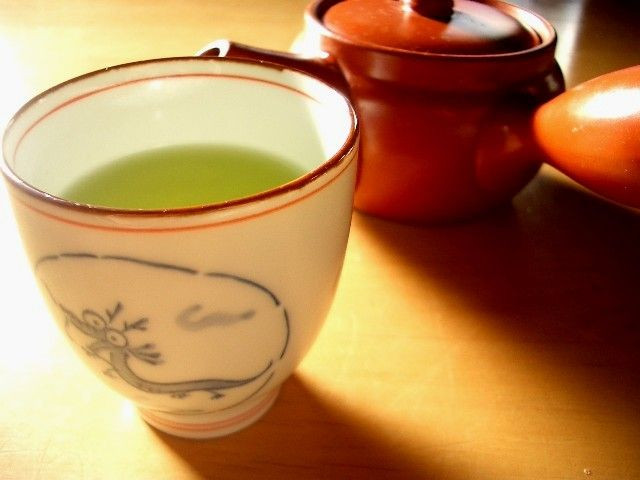Mounting Research Shows Green Tea May Help Prevent Alzheimer's Disease

Green tea has long been hailed for its antioxidants within, but mounting research is starting to show that it can have benefits beyond fighting free radicals, such as preventing Alzheimer's disease.
Researchers at the Michigan Alzheimer's Disease Center discovered that the flavonoid ECGC — or epigallocatechin-3-gallate — in green tea could bind to the toxic protein beta-amyloid, which collects in patients with Alzheimer's, causing many of its symptoms. By doing this, the green tea component changed beta-amyloid's properties. Dr. Mi Hee Lim, lead researcher in this study, found that ECGC bound to to beta-amyloid best when calcium or zinc were present, and that upon binding, they were less likely to form into plaques that cause Alzheimer's by growing in the brain.
When ECGC bound to beta-amyloid it forced the protein, which can normally turn take on any shape, to turn into a single shape. This change also resulted in a beta-amyloid that was less toxic, suggesting that the shape it turned into was less toxic than other forms of beta-amyloid.
In another study, researchers wanted to see if a mixture of purified ECGC and resveratrol — an extract from red wine — could prevent amyloid balls from binding to proteins on nerve cells called prions.
"We wanted to investigate whether the precise shape of the amyloid balls is essential for them to attach to the prion receptors, like the way a baseball fits snugly into its glove," co-author of the study, Dr. Jo Rushworth said. "And if so, we wanted to see if we could prevent the amyloid balls binding to prion by altering their shape, as this would stop the cells from dying."
Indeed, the mixture distorted the shape of the amyloid balls in a way that made them unable to bind to the prions.
But green tea doesn't only have Alzheimer's preventative properties. Another study found it could boost memory as well. Looking at the effect of ECGC on humans, researchers imaged the brains of 12 participants using MRI while they performed memory stimulating tasks. The participants were given either a milk whey based soft drinks, but only some of them had green tea extract. When the participants were tested, those who had the drink with green tea showed more activity in the dorsolateral prefrontal cortex, a part of the brain responsible for processing working memory. What's more, the researchers also found a dose-response in which higher doses of green tea lead to more activity in the brain.
While all of these studies tested green tea extract, and shown the benefits of it, experts still say that the dosages may were not high enough to be used as therapy. But with no harms found from green tea, there's really no reason to stay away from it. If these studies have proven anything, it's that scientists now have multiple starting points for developing stronger forms of ECGC that may one day be used to help prevent Alzheimer's before it even has a chance to start.
Source:
Borgwardt S, Hammann F, Scheffler K, et al. Neural effects of green tea extract on dorsolateral prefrontal cortex. EJCN. 2012.
Hyung S, DeToma A, Brender J, et al. Insights into antiamyloidogenic properties of the green tea extract (-)-epigallocatechin-3-gallate toward metal-associated amyloid-β species. PNAS. 2013.
Rushworth J, Griffiths H, Watt N, et al. Prion Protein-Mediated Toxicity of Amyloid- β Oligomers Requires Lipid Rafts and the Transmembrane LRPI. The Journal of Biological Chemistry. 2013.



























